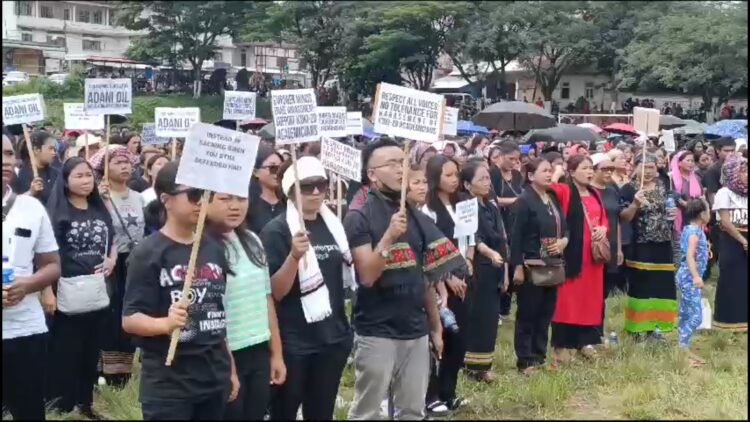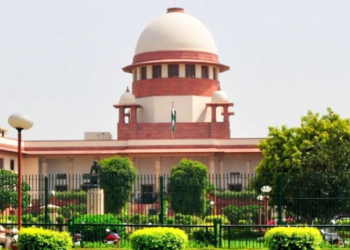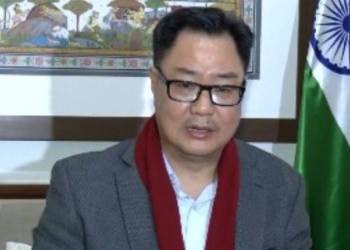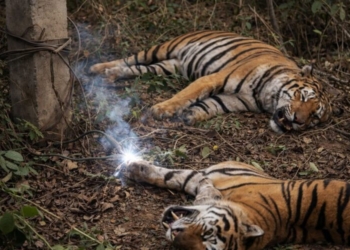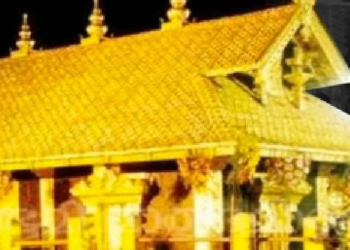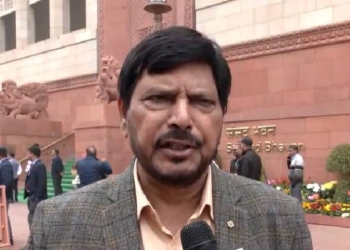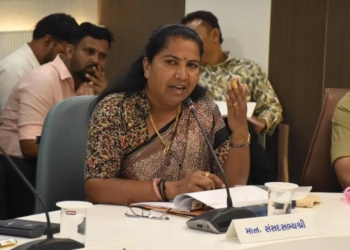Imphal/Kohima: With the Naga political issue remaining unresolved for decades following the strong opposition to the NSCN-IM’s demand for a separate flag, constitution and integration of the Naga dominated areas of the northeast, a solution to the Manipur ethnic crisis also remains uncertain with the majority community in the state including the state government strongly opposing the tribals’ separate administration demand.
Within nine days of the ethnic violence breaking out in Manipur on May 3, ten tribal MLAs including seven belonging to the ruling BJP, two leading tribal organisations — Indigenous Tribal Leaders’ Forum (ITLF) and Kuki Inpi Manipur (KIM) — also started demanding separate administrations for the tribals, comprising Kuki, Zomi, Chin, Mizo and Hmar.
Even though Union Home Minister Amit Shah, the Chief Minister, the ruling BJP, Meitei body Coordinating Committee on Manipur Integrity (COCOMI), and many organisations strongly opposed the separate administration demand, the ten tribal MLAs on August 16 once again sent a memorandum to Prime Minister Narendra Modi demanding creation of the posts of Chief Secretary and Director General of Police or equivalent posts for the five tribal dominated hill districts.
The hill districts are Churachandpur, Kangpokpi, Chandel, Tengnoupal and Pherzaw.
The ten tribal MLAs, including Lallian Mang Khaute, former IPS officer and MLA from Churachandpur, alleged that Manipur capital Imphal has become a valley of death and destruction for the Kuki-Zomi people. No one dares to go back to the city, where important offices, including the state secretariat and other government offices and institutions are located.
“Even elderly members of the state Assembly were not spared. BJP legislator Vungzagin Valte and his driver were waylaid while he was returning from a meeting at the chief minister’s bungalow on May 4.
“The MLA’s driver was beaten to death and the MLA was tortured and beaten and left for dead. The MLA, however, was rescued by the security forces and was rushed to New Delhi, where he is slowly recovering, but has been left incapacitated both physically and mentally,” the memorandum said.
It said that the houses of two cabinet ministers, Letpao Haokip and Nemcha Kipgen (lone woman minister in Manipur), were reduced to ashes during the riots.
The tribal MLAs claimed that even the IAS and IPS officers belonging to the Kuki- Zomi tribes have been unable to function and discharge their duties.
On the other hand, 40 MLAs of the ruling Manipur coalition, including the Naga MLAs, had also signed a joint letter to the Prime Minister earlier this month and demanded complete disarmament, withdrawal of the Suspension of Operation (SoO) agreement with surrendered Kuki militant groups, and withdrawal of the Assam Rifles from the state.
Strongly opposing the separate administration demand, they alleged that the Assam Rifles was biased and they have been sheltering militants, and also using excessive force in dealing with Meitei women protesters.
The non-tribal Meiteis account for around 53 per cent of Manipur’s around 3.2 million population and live mostly in the valley region while the tribal Nagas and Kukis constitute 40 per cent of the population and reside in the hill districts, which cover around 90 per cent of the geographical areas of Manipur.
Similarly, there is stiff opposition to the demands of the Isak-Muivah faction of the National Socialist Council of Nagalim (NSCN-IM) in all the neighbouring northeastern states.
Greater Nagalim stipulates the integration of Naga-inhabited areas of Manipur, Arunachal Pradesh, Assam as well as Myanmar.
In 2001, Manipur witnessed a violent agitation against the NSCN-IM demand and even the state assembly was partially burnt.
Many people lost their lives when the ceasefire between the Centre and the NSCN-IM was extended without territorial limits.
Greater Nagalim along with the separate flags and constitution are the NSCN-IM’s core demands causing the delay in the final resolution of the Naga issue.
Manipur’s Naga-dominated districts include Tamenglong, Chandel, Ukhrul, and Senapati, which are along the Nagaland and Myanmar borders.
Political pundits observing Manipur’s ethnic conflicts for more than three months said that Centre’s indifferent attitude, wrong handling of the complex ethnic position, massive illegal drugs peddling, intelligence failure, Myanmar’s internal crisis as well as electoral politics led to the present crisis.
Political observer Rajkumar Satyajit Singh, a Manipuri based in Assam, said: “Suspension of Operation was signed with 23 Kuki militant outfits 15 years ago and 2,266 Kuki cadres have been staying in different designated camps in Manipur. Why did the Central and state governments not take any steps for a final solution of the issue during the 15 long years.”
He said that like the India-Bangladesh border, fencing along the India-Myanmar border must be done on a priority basis and security along the mountainous frontier must be tightened to curb cross border movement.
The governments in collaboration with civil society organisations of all communities must take steps for an immediate solution to the Manipur crisis, otherwise the situation would go out of control, Singh told IANS.
(IANS)




